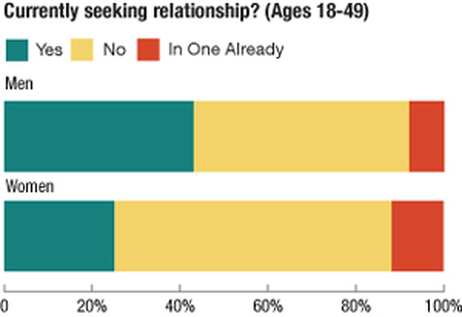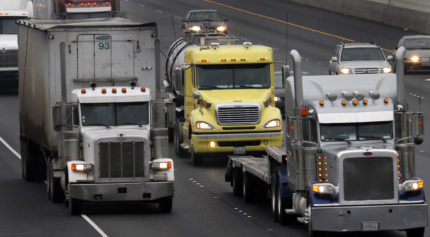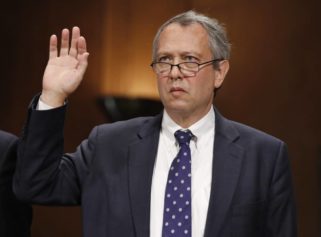You might think that African-Americans might be more pessimistic about their lives. The housing crisis decimated pockets of black wealth. The black unemployment rate has been nearly double the national average for several years.
But according to findings from a survey of more than 1,000 African-Americans, you’d be wrong.
A new poll released Tuesday by NPR, the Robert Wood Johnson Foundation, and the Harvard School of Public Health found that the overwhelming majority of black people (86 percent) said they were satisfied with their lives. Nearly 60 percent said they would eventually achieve the American dream of financial security and home ownership. A little more than half of those polled (53 percent) said they felt their lives had gotten better in recent years.
The survey sampled about 1,081 people, and the geographic breakdown — with a majority of respondents in the South or in urban areas — roughly matched the demographics of African-Americans in the country more broadly.
It asked respondents for their opinions on a wide range of issues: finances, personal health, dating lives, assessments of their communities and neighborhoods, and much more.
Robert Blendon, a professor of public health at Harvard and one of the study’s co-directors, said that polls usually find that that people’s reports of their life satisfaction is often much higher than the economic climate might indicate. This optimism has barely budged from Harvard’s last poll of African-Americans in 2002, when 90 percent of black people said they were satisfied with their lives.
Twenty-one percent said that they’d achieved the American dream of having a nice home and financial security, while nearly 60 percent said they had not, but felt they would eventually. (Sixteen percent said they felt they would never achieve it.)
But Blendon said that beneath that optimism, there was real anxiety. Respondents are “satisfied with their lives but there’s a lot of concern,” he said. “They’re very fearful of losing their jobs and very fearful of getting stuck with a very large medical bill if they get sick.”
A STARK DIVIDE ON FINANCIAL STABILITY

NPR
When the poll respondents were asked how they felt about their financial lives, there was a clean break right down the middle — about half rated their financial situations as “good” or “excellent,” while half said their situations were “not good” or “poor.” (This question was about what people thought of their financial conditions, and not about their actual income or personal wealth.)
The way a given person answered this question correlated with big differences in how they answered other questions. “Just that one split leaves people with very different life experiences,” Blendon said.
Perhaps unsurprisingly, that break tracked with differences in the way people felt about things, like how people felt about the schools nearby, their police departments, the cleanliness of their streets, safety from crime, and the availability of fresh produce.
“People view their lives in very complex ways, it’s not just one-dimensional,” Blendon said. Even respondents who said that crime in their area was a significant problem for them didn’t necessarily feel unhappy with where they lived. (Asked the open-ended question, “What is the biggest issue facing the area where you live?” respondents listed crime above every other concern.)
ALL THE SINGLE FELLAS?
One of the most surprising findings in the study: who was or wasn’t looking for a romantic partner. When people in the prime marrying cohort — ages 18 to 49, never married, divorced or widowed — were asked whether they were seeking a long-term relationship, just about a third said they were.
But it’s the gender breakdown of the relationship numbers that really jump out: men were much more likely to say that they were looking for a long-term relationship (43 percent) than were women (25 percent).

NPR
Blendon speculated that this, too, might be tied in part to economic concerns. He pointed to studies in which black women are more concerned with the financial stability of their partners than Latinas or white women. And since black women are outpacing black men on a host of metrics that might determine their financial prospects — black women are more likely to attend and graduate college and receive advanced degrees — Blendon says they may be less likely to see much financial upside in pairing up compared to black men. “African-American women appear to have more security than men, and so women [might] see less men who see bring financial security to the table,” he said.
(An important note here: the pollsters asked people their feelings about entering long-term relationships — not marriage.)
HEALTH CARE CONCERNS
In general, African-Americans were much more satisfied with their health care options than they were a decade ago. When Harvard did its last large poll of black people in 2002, only about a quarter of black people said they were “very satisfied” with their health care options. But this year’s number showed that the approval numbers nearly doubled, to 47 percent. Indeed, two-thirds said they felt that the last time either they or another family member fell ill, they were treated by one of the best doctors in the area.
Those numbers might be surprising: Government figures from 2011 show that 1 in 5 African-Americans was uninsured. But when asked about getting medical care over the past 12 months, the number of people who said they or a family member couldn’t get medical care was about 1 in 8 — down from the 1-in-5 figure reported to the Robert Wood Johnson Foundation in 2006.
But while there was improvement on access, there were still areas of concern that hadn’t budged. Twenty percent of respondents listed high blood pressure and stroke as the biggest health problems in their families, while 19 percent cited diabetes.
Read more on NPR


